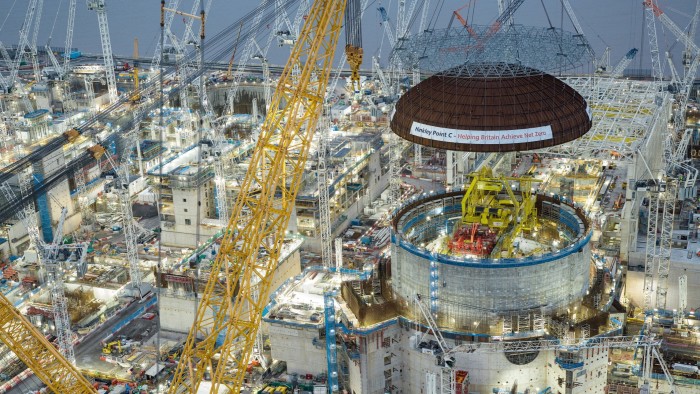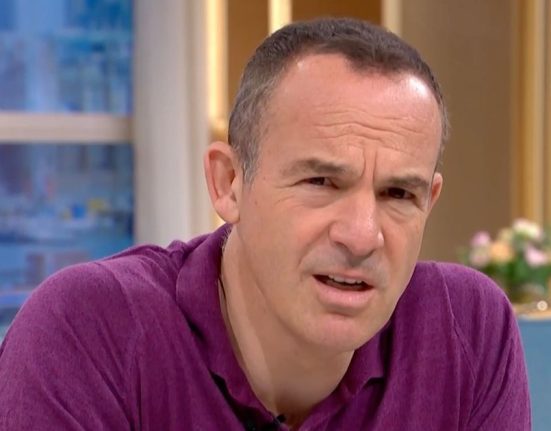Unlock the Editor’s Digest for free
Roula Khalaf, Editor of the FT, selects her favourite stories in this weekly newsletter.
US private capital group Apollo will provide £4.5bn in debt financing to support the UK’s Hinkley Point C nuclear power station, easing mounting financial pressure on the delayed and over-budget project.
The investment-grade package will be provided as unsecured debt at an interest rate just below 7 per cent, according to people familiar with the matter.
EDF, which is building two new nuclear reactors at the site in Somerset, said it will be able to borrow £1.5bn each year over three years as part of the package. The debt has a maximum maturity of 12 years.
The debt package addresses a significant gap in the finances of the project, which has struggled with a shortfall since China General Nuclear Power Group (CGN), which was supposed to provide a third of the cost of the project, stopped providing further financing in 2023.
CGN departed after being removed by the British government from another project — Sizewell C — over concerns about Chinese influence.
Originally projected to cost £18bn and begin operations this year, Hinkley’s estimated cost has ballooned to almost £46bn, with a start date of 2029 at the earliest.
Apollo’s funding could be used for other UK projects by French state-owned electricity group EDF, but Hinkley Point is expected to be the primary target for the debt package.
EDF said the financing enables it to “secure a substantial part of the sterling financing of its investments in the UK over the next three years, in particular the Hinkley Point C project.”
The deal is another sign of how private credit has expanded its reach and is challenging both traditional lending from banks and high-grade bond markets. EDF opted for private over public issuance partly due to the smaller sterling market compared to euro or dollar-denominated bonds.
Apollo has become a pioneer in lending billions of dollars to some of the world’s largest companies and has recently provided private credit to groups including Intel, Air France and AB InBev.
The firm, which overall manages $800bn and has a large retirement annuities business, has also made Europe a priority market, believing that the UK and broader continent is ripe for an investment boom, particularly in energy and infrastructure development.
Jamshid Ehsani, head of global principal structured finance at Apollo, hailed the deal as the “largest ever” sterling private credit deal.
“It’s going to help finance a critical, low carbon nuclear project. This is the business Apollo is in today,” he said. “Europe is a huge focus for us.”
Hinkley is the first in a new “fleet” of nuclear power stations to provide baseload electricity for the UK as the country shifts to low-carbon sources of power.
The project has been given guarantees from the UK government that it will receive a certain price for future electricity it generates via a system of “contracts for difference”.
Hinkley Point C’s financial difficulties have contributed to a delay in signing off Sizewell C, with France’s industry and energy minister Marc Ferracci arguing to the UK government that the two projects should be linked financially.
New EDF chief executive Bernard Fontana has been tasked by the French government with focusing on the development of new reactors in France, after former boss Luc Rémont was ousted in March over strategic disagreements.
Sign-off on a final investment decision on Sizewell C is expected to come at a Franco-British summit next month. Earlier this month, the UK pledged £11.5bn of state funding for Sizewell C to take total taxpayer investment in the site to £17.8bn.







